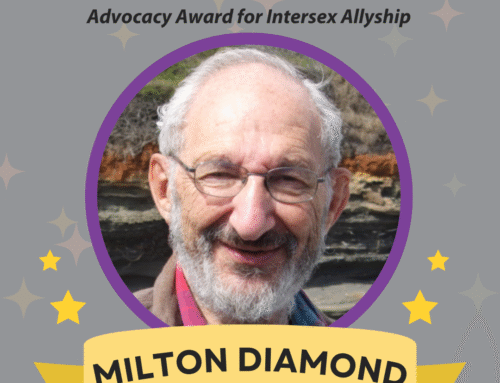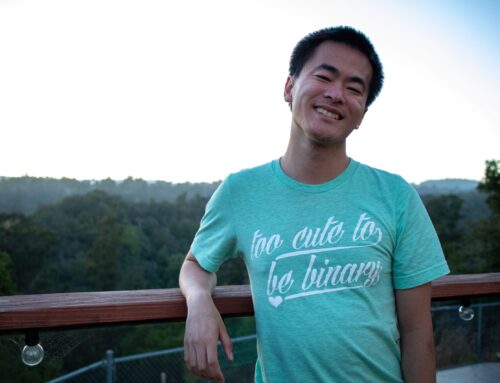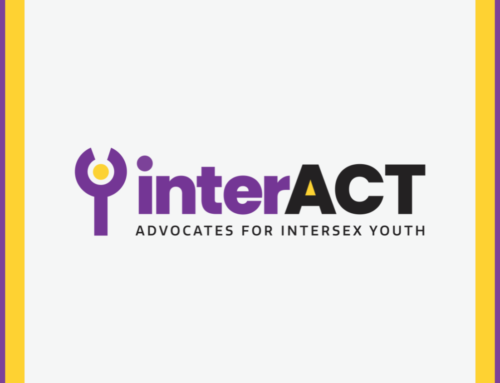interACT supports the work of our friends in Australia. The country has launched a national inquiry into intersex medical interventions. Our Executive Director, Kimberly Zieselman, writes in support:
I write as the Executive Director of interACT: Advocates for Intersex Youth, the United States’ largest organization dedicated exclusively to advocacy on behalf of youth born with variations in their sex characteristics. Our organization employs legal strategies to improve care, media consulting to end shame and stigma, and youth empowerment efforts to create the next generation of intersex leaders.
I have seen throughout my career the reverberation of fear of difference that originates with the way medical professionals approach our bodies. Despite that we are generally healthy just as we are, our differences become an opportunity for others to see us as broken—leading to a deeply harmful narrative that we will never be enough, our intersex realities something to be dealt with rather than celebrated.
As is the case in many communities that experience trauma, there is a link between how we are treated by those in power and how we treat those among us who refuse to conform to the norms placed upon us by greater society. There is a direct link between the narrow and pathologising forms of disclosure by doctors to parents and the resistance to diversity of membership in intersex groups to other forms of what it means to be intersex. It goes like this: doctors tell parents that their child has “a problem” that they can fix through nonconsensual interventions. The parents approach the child as having a problem, and the child internalizes that there is something wrong with them necessitating that approach. By avoiding an affirmative rights-based approach to healthcare, these physicians remain in business and sooth parents’ anxiety about learning to celebrate a child that may differ from their socially constructed expectations. Doctors sometimes frame intersex as an identity to be assumed later on, but what they are doing through this approach is isolating parents and families from what are regarded as perspectives that challenge their livelihood. Intersex people who internalized this may recreate it later on.
We at interACT recognize this harmful pattern and are working to support the bodily autonomy of youth across the spectrum. We see through our oversight of the nation’s largest intersex-led youth cohort that what creates healthy outcomes for these children is not the imposition of restrictive structures on their identities but instead the supportive recognition that they are perfect just as they are. Paternalistic approaches to their variations do nothing but create harmful minority stress outcomes, and the medical interventions such approaches support bring about extreme psychological harm—including levels of Post Traumatic Stress Disorder equivalent to the experience of childhood sexual abuse. Furthermore, recent research warns against unnecessary exposure to anesthesia in early childhood as it can negatively impact the developing brain. These risks can all be avoided by delaying any unnecessary procedures until the intersex person is old enough to make these decisions for themselves.
I saw through my years on the governing board of the AIS-DSD Support Group, the largest support group for this population in the US, the difficulty of explicitly recognizing the harmful pattern of these approaches. They are often put forward as “neutral” because they fit into larger societal reactions to the celebration of difference. But accepting human rights violations is not the same thing as valuing different perspectives. Parental rights do not legitimize a dehumanizing approach to intersex realities. I urge you to recognize your impact on the lives of these deeply vulnerable children.
Sincerely,

Kimberly Zieselman
Executive Director, interACT







